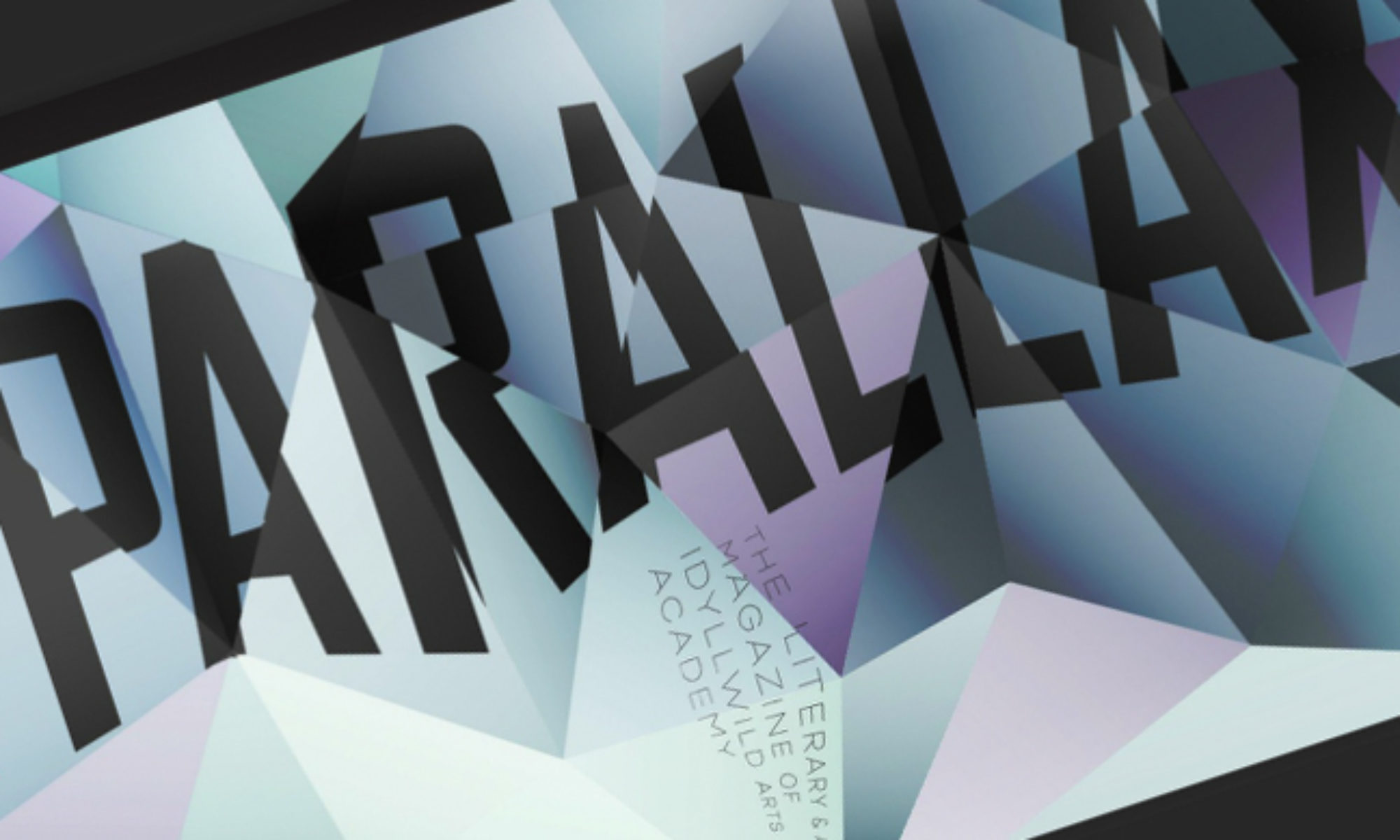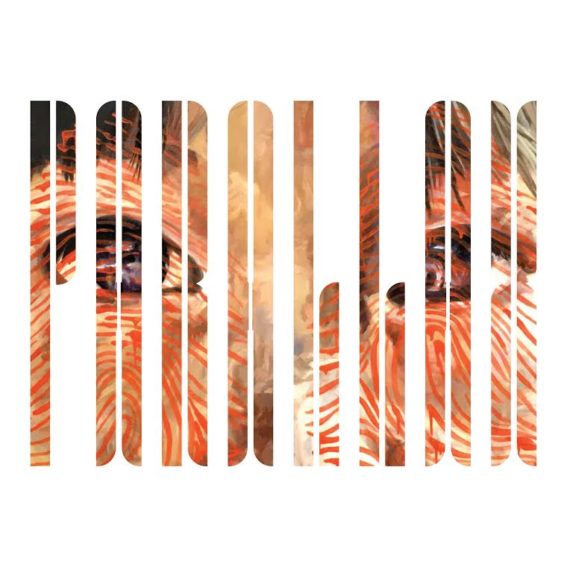Category: Uncategorized
Deaf Republic: A Step Beyond Protest
Deaf Republic by Ilya Kaminsky: ISBN-10: 1555978312. Price: $11.00. Published March 5, 2019.
Ilya Kaminsky´s Deaf Republic is a brilliantly-crafted book of narrative poetry that moves through a sad and deeply thought-provoking plotline, inspired by Kaminsky’s own experiences in Russia as a child. It follows the story of people in a fictional town using deafness as a form of protest against violence and war, after a soldier kills a deaf boy in the street.
The depictions of violence and love throughout are eerily and astonishingly beautiful. Kaminsky creates a terrifyingly dreary and oppressed feeling throughout the book, while also highlighting the beautiful relationships and hope the townspeople continue to have despite the violence and oppression they are surrounded by.
As the poems go on and the story progresses, the townspeople who do not give up their protests are taken away one by one if they show signs of deafness. Despite this, protests continue in a silent fashion, while the responses of the soldiers grow more and more violent and intense.
The poems themselves are experimental. For example, “Dramatis Personae” is an early poem in the book designed to introduce characters in the collection. Kaminsky is also unafraid to say what he means, sometimes very intensely such as in the poem “As Soldiers March, Alfonso Covers the Boy’s Face with a Newspaper.” One of the lines within this poem is “We see in Sonya’s open mouth / the nakedness / of a whole nation.” The poems progress the overall story, and while in general the story is quite heavy and sad at times, each poem also adds a surprising and delightful level of dark humour, shocking language and profound descriptions of the violence.
Deaf Republic does not fall into the tropes of what is popular in poetry right now, which is mostly geared towards younger readers and is generally humorous, or give an air of shallow meaning masquerading as powerful. Instead Kaminsky goes for something different, using humour in an intelligent and meaningful way, and using illustrations subtly. Deaf Republic explores traumatic topics and heavy storylines beautifully rather than making the reader feel bombarded by violence. One thing that Kaminsky does well here which is important is including love in a story about war. War often tests our ability to maintain love, positive feelings and peace within ourselves and our homes while we’re experiencing violence outside of them. One of the most important things to remember in times of war and violence is to keep a sense of love or joy in some way. Kaminsky highlights this importance through the relationship described in his book, and the townspeople in general.
Kaminsky, who is hard of hearing due to a misdiagnosis of mumps at an early age, incorporates sign language in conjunction with deafness and protest, through simple and beautiful illustrations of sign language throughout the book. These drawings add to the poems without the poems becoming reliant on them.Overall, Kaminsky provides readers with a beautiful experience with Deaf Republic. The themes and plot can, at times, be related to current issues, and the book does an amazing job of bringing hope out of a traumatic situation. We could all learn a lot from the townspeople of Deaf Republic who put their lives on the line in the name of hope and love, and who refuse to give in to oppression.
Fiction and Poetry Scholarship Contest!
Fiction and Poetry Scholarship Contest:
Om mani padme hum
What would Buddha be like if he were roaming the soil today?
Would he still wander India?
Or leave due to atrocious air quality and mass population?
These are things Siddhārtha never had to put up with
…
Would he still believe in putting up with everything?
…
The world is much too cynical, and we’d designate him as a cult leader
Or if he’s lucky, a trendsetter
Marketplace Buddhism seems to have consumed the West
At least the East remains pretty pious and punctilious
The West has just managed to pervert our daily meditation between Sunday brunch and our afternoon run
What would Buddha think of T.S. Eliot’s, Allen Ginsberg’s, and others’ flirtations with his doctrines?
Subverting them to their gyration and needs for transgression
(Though some engage with honesty)
America has seemed to distort Buddhism into chic leisure
If Siddhārtha was from America, he could’ve shown L. Ron Hubbard how to get the people clear without an E-meter
Buddhism could’ve been fantastic for capitalists if it was American
Would Buddha indeed remain so abstinent with all this hegemonic global marketing for intemperate gluttony?
A little leniency would’ve been helpful since there was no way he could have predicted what was to come
Would he have preferred the religious miscellany of Taiwan where temples amalgamate various beliefs, counting his developments?
Or favored the autonomous institutions of the West?
…
He’d have the intellect to discern the perpetual profit of unification
…
In our unified globalist world would he find bona fide social union?
Or technological excuses for minimal concrete interaction?
The traditional Buddhist wouldn’t bother with the strange portable hypnotic machine
But there’s the possibility that Buddha would shiver at the notion of it being away from him
Maybe we could’ve received texts of sutras personally from Gautama
His works on simplicity would align with Apple’s philosophy quite well
What would the political Buddha look like?
Would he lean left or right?
Or would he find it all to be in vain?
What would he have to say to the people of Myanmar who commit atrocities in his name?
What would he have to say to the tension-fueled relationship between the two Chinas?
Or about American carpet-bombing in the Middle East?
Would he find the will to keep on instructing in his ways?
The meditation to stay mindful in these mindless times
Or would he find it all hopeless
And see nothing human left
All that was left was humanity’s struggle to survive
And billions of zombies craving blue light and higher reception
Recording instead of listening to the monks in Taipei chanting the last of the meaningful matter
II
I’ve been set free
I’ve accepted the truth of suffering, and thus I’m free
I’ve rolled up to Buddha’s crib, and I’ve come out free
I’m unchained from the dead and the living
Free of the light and the dark
I’m free of linguistic oppression, and I now enumerate the beatitudes in Sanskrit
and chant mantras in Latin
I’ve fled to Taiwan only to find America
I’ve been working on a fifth noble truth; corporations
I’ve been lobbying Congress to send out presidential alerts for any metaphysical trembling
I’m set free of association, and I now use rosaries to recite the buddhavacana
I’ve never had so much spiritual rebellion and defiance
The rounds of suffering have left us tired and imprisoned to some fate
We’re only safe in the world we create
III
If you listen real close, you can hear the om
Just put your ear to the speakers of the universe, and it’ll resonate through you
The banging of the unseen echoing drum
The beat that we always go to
You don’t need to buy it on iTunes for $0.99
You don’t need to stream it either
Just listen to the flexing air void of suspense
And reach a little deeper
Gabriel T. Clément is a junior at Jersey City’s Saint Peter’s Preparatory. He was born in Montréal, Québec, and lives in Hoboken, New Jersey. His influences are mainly those from a Québécois background (Leonard Cohen, Émile Nelligan, Irving Layton) and others like Allen Ginsberg, T.S. Eliot, and Eliot Katz.
Visual Art by Sarah Little.
The Marshmallow
PURE is this sweet, and pure confection
Powdery, spongy untainted white
Blissful bundle, and now finger’d fare,
Ah, this tasty marshmallow square.
Thou know’st that this cannot last
A form reformed by fingers without a past;
How this heat changes you
And swelling, insides oozing goo;
And this, alas! chang’d through and through.
O dark unsightly, unwelcome crust,
Coating caked, white, no more.
This marshmallow harm’d and, I am changed
Our skin scarred, jutting bones rearranged.
Crying uncontroll’d, as I bear witness
And the creepy black brown crust of this.
Now burnt, scathed and impure,
Misshapen sweetness now obscur’d,
And life and death and pain endur’d
Cruel cancer, hast tumors multiforme
Glioblastoma, mass surgery deformed?
Wherein could this marshmallow be,
Except in this molten middle that comes from thee?
Now finish’d, consum’d, no more blacken’d crust
Not pure sweet, but bittersweet, chalky remains and dust.
Memories of her without tumors last;
Just good and bad, now chang’d, time pass’d,
Sweet tastes of life, pure and innocent, burnt and beautiful.
Halsey Lilac Hutchinson was born in June 1999 on a cold, windy evening as the fog crept across the Golden Gate bridge along the corridors of California Street. Soothing her mother’s cries, the room smelled of lilacs, delivered by the hour from a fearful father to whom women still seemed to be a mystery. Now at the age of sixteen, Halsey is a junior at the acclaimed San Francisco University High School, known for its unique interdisciplinary approach to art, history and music. She spends weekends at SF Botanical gardens finding creative inspiration among the vibrant purple hydrangeas and never misses her annual trips to Pacific Grove to observe the colorful orange and black monarch butterflies in the shimmering eucalyptus trees.
Art by: Sterling Butler
Megabat
I’ve never had a headache. Common
misconception. I’m bloodless, pale
lipped as toilet-sick kids. Hanging
isn’t as hard as it looks. No, my bane
is calcar: the wing-stretcher bone,
brittle as early-March underskin.
Born to tree fork and white
eyes in nighttime, swing now
between fists. I swaddled
alone in my own wings,
bit fruit, slept upside down
huge in broad daylight.
Strand of tibia, elongated
tooth. Those are bones too.
Hello to the space my body
wants and sorry
from a long line of skulls.
By: Emily Kessler
Emily Kessler is a senior at the Walnut Hill School for the Arts in Natick, MA. She likes corn muffins, moose tracks, and League of Legends. She likes dogs that people point to and say, “That dog is a horse.” She has short brown hair.
Pink Weddings with Kristina Darling & Carol Guess.
Kristina Marie Darling & Carol Guess. X Marks the Dress: A Registry. 2013. 100 pages. $15.15. ISBN: 0985919159.
Kristina Marie Darling & Carol Guess bring a wonderful collection of poems in their book X Marks the Dress: A Registry. These poems explore various themes, such as relationships, identity, and love, but the authors manage to write them in such a way that the collection reads like a short story. Darling is a recognized author of seven other books and is the winner of the Helene Wurlitzer Foundation Award; Guess has published another twelve books, some of which were nominated for the Lambda Literary Award. This collaboration resulted in one of the most interesting and catching poetry books I’ve come across this year.
From the very first poem, we are transported into a vintage, pink world that gives the sense of being part of a fairy tale. However, as one moves on, we realize that this is more of a bittersweet story, like what happened before the characters could live happily ever after. We get to witness scenes previous to the wedding and how they affect the vision we have of ourselves, the experience of becoming parents, the fights the couple has, the struggles we go through trying to regain our sense of identity. The authors do a perfect job keeping the readers interested, drawing them into a knot of experiences and emotions that get more and more complicated. While reading this, I found myself feeling nostalgic, as if I was looking at the wedding album of someone I knew very well, knowing that their lives weren’t exactly a perfect fairytale, but that there is still a bittersweet love between them. This is a book that can be enjoyed by anyone, because even if the reader is more into fiction stories than poetry, X Marks the Dress: A Registry, can be read as a plain, sweet short story.
One of the most interesting aspects of this book was the experimentation with various formats to take us on this journey. Filled with prose poetry, appendixes, footnotes and line breaks, it creates a very unique and creative reading experience. For example, the poem “A History of Wedding Invitations: Glossary of Terms,” just consist of various definitions of many concepts that surround the idea of weddings; however, they are not “formal” definitions that we would find on a dictionary: the writers here played with the concepts they have been working on the book so far, adding their own original ideas to these concepts, making it fun to read. Or in their poem, “Appendixes,” where it just consists of footnotes, but there’s not text at all. Yet, as we read the footnotes, we can have an idea of what the “invisible poem” would be about.
Even when the formatting is so varied, it does not make the poems hard to follow, which comes back to my earlier point that this book can be also read as a short story. This is the perfect book to have a date with on a weekend. This book must definitely be part of your bookshelf!
Afternoon
I rest my trembling chest
by relying on a blanket of dancing leaves
the sage window is framing the tree
a picture parallels a memory of future
only a few blinks ago, I too was rowing my heart
life is a feather; it only takes place through letting go
it only dances when you let it trip through the air of breaths
all smiles and tears are an excuse to stare
at the ground or the sky filled with invisible eyes
and the parallax of people’s faces will make you
want to be a part of it again
a window of a moving train, the tail of a rat
or the city, resting near the shore
the ocean, its hair, the breeze, its voice
with arms opened wide, bursting out to azure
it all will turn into a journal of dusty poems
and the journal, someone else’s rotten box
at the end, all hands guiding you to yourself
it all is a pine, spinning through a forest of petals
By – Parisa Sheikholeslami
The Not So Wild Girls
Mary Stewart Atwell. Wild Girls. 2012. 273 pages. $17.84. ISBN: 978145168327.
Mary Stewart Atwell has left behind her usual short stories to write her first novel, Wild Girls. In this novel, Swan River County has nothing to offer for Kate Riordan to stay after graduation: all she wants is to flee from her dysfunctional family, her good-for-nothing friends, broken relationships with a couple of boys, and what she’s most afraid of—the wild girls.
Some people consider them a legend, characters from superstitious stories, but Kate knows better: teenage girls suddenly go mad, as if possessed, and destroy everything in their path, from buildings to lives, committing the most atrocious murders. Kate refuses to become one of them, doing everything in her power to avoid getting stuck in Swan River for the rest of her life as all the surviving wild girls do when they return to their normal selves. Even when Kate tries to avoid becoming a wild girl, one frustrating thing about these mysterious beings is that nobody knows the reason why they turn into serial killers or how to avoid it. At the beginning of the story, Kate witnesses the transformation of a wild girl, and, from that moment, the reader’s perspective changes.
“He prowled among them, and Rosa reached out to caress his shoulder. As if on cue, they circled him, their black robes hiding him from sight. I hears one scream, guttural and rattling, as if he were choking. The wild girls were screaming too, and streams of blood blackened by moonlight ran from under their robes spilling over the edge of the stage.” (Wild Girls, pg. 242)
Atwell does a great job of show-don’t-tell, making the reading flow easily for us and drawing us in to continue the reading. The flaws, wants, needs, and characters’ personalities are very unique, making the story unpredictable and therefore making it even more interesting to read. Even though it’s a story about a teenager with all her friend/boyfriend/family problems, Atwell doesn’t make her problems fall into clichés but transforms them into bigger problems that put Kate in danger.
As gripping as it sounds, as one goes through the pages, the idea and concern about the wild girls gets lost because we don’t hear from them as often as we would expect. Well, nicely played Mary Atwell, because she let our guard down and then we have this spectacularly macabre twist of events that make your hands shake while reading. As I read, I found that the perspective I had of this story before I started reading it changed. It sounded like an exciting thriller about girls going wild and the role of a teenager trying to avoid joining them. It turned out to be a powerful story, but maybe one missing the nail-biting suspense of the best thrillers. Wild Girls is indeed a unique story, with original characters and a very good plot, undoubtedly making it a worthy read.



